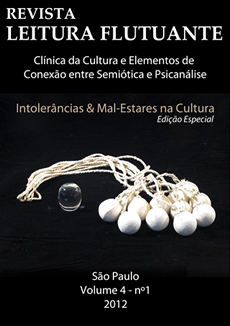The uncanny house in Elizabeth Bowen’s fiction
Palabras clave:
uncanny, domestic space, traumaResumen
It has been pointed out by critics, such as H. Lee, S. Wasson and others, that the house is a focal point in many Bowen’s works. It plays a significant role and has a symbolic dominance in the novels and short-stories written by the author. “A living, organic part of the world”, as Elizabeth Bowen calls it, in her fiction the house has the value very much like a character. In this paper we would like to discuss the image of the house from the novel The Death of the Heart within the notion of the uncanny. In our paper we will rely on the theoretical frameworks of psychoanalytic literary criticism, the works of S. Freud, E. Jentsch, and N. Royle. The domestic space of the novel is presented as alien and frightening, and the house is distinguished by its sinister darkness, emptiness and the cold. For its inhabitants, it can suddenly lose its familiarity and become unfriendly and uneasy to stay at. The house engenders loneliness, alienation and estrangement. But this uncanniness is subjective and originates in the characters’ traumatic experience of the past, namely the loss of family (orphanhood or childlessness) and/or homelessness and exile.
About the Author:
Olena Lytovka is a PhD student at the Chair of Anglo-Irish Literature, Maria Curie-Sklodovska University in Lublin, Poland. She is particularly interested in English modernist literature and psychoanalytic approaches to literature interpretation. In her PhD thesis she analyses E. Bowen’s fiction and focuses on the uncanny representations in the domestic space of the novels.
Métricas
Descargas
Cómo citar
Número
Sección
Licencia
Proposta de Política para Periódicos de Acesso Livre
Autores que publicam nesta revista concordam com os seguintes termos:
- Autores mantém os direitos autorais e concedem à revista o direito de primeira publicação, com o trabalho simultaneamente licenciado sob a Licença Creative Commons Attribution que permite o compartilhamento do trabalho com reconhecimento da autoria e publicação inicial nesta revista.
- Autores têm autorização para assumir contratos adicionais separadamente, para distribuição não-exclusiva da versão do trabalho publicada nesta revista (ex.: publicar em repositório institucional ou como capítulo de livro), com reconhecimento de autoria e publicação inicial nesta revista.
- Autores têm permissão e são estimulados a publicar e distribuir seu trabalho online (ex.: em repositórios institucionais ou na sua página pessoal) a qualquer ponto antes ou durante o processo editorial, já que isso pode gerar alterações produtivas, bem como aumentar o impacto e a citação do trabalho publicado (Veja O Efeito do Acesso Livre).


